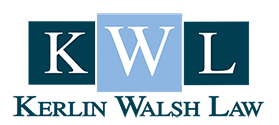Studies estimate that 70% of family wealth is lost by the end of the second generation and over 90% by the end of the third generation.[1] To help clients avoid becoming part of this statistic, advisors must be adept at bridging the disconnect among generations regarding the preservation of family wealth.
Why Is Most Family Wealth Lost by the Third Generation?
 Many people assume that errors in financial and tax planning and investment strategies are the main cause of lost wealth over generations (in other words, they blame it on someone else’s mistakes). However, according to a study conducted by The Williams Group, these factors are included in the category “all other causes,” which account for only 5 percent of lost family wealth. Instead, the largest contributing factor to generational loss of wealth (60 percent) is from trust and communication breakdown among family members, followed by failure to prepare heirs (25%).[2]
Many people assume that errors in financial and tax planning and investment strategies are the main cause of lost wealth over generations (in other words, they blame it on someone else’s mistakes). However, according to a study conducted by The Williams Group, these factors are included in the category “all other causes,” which account for only 5 percent of lost family wealth. Instead, the largest contributing factor to generational loss of wealth (60 percent) is from trust and communication breakdown among family members, followed by failure to prepare heirs (25%).[2]
Why is there a lack of communication and trust that inevitably leads to unprepared heirs? Surveys have shown that fear is the dominant emotion preventing clients from communicating with their heirs about their wealth:
- Fear about running out of money
- Fear about creating an “entitlement mentality” in heirs
- Fear about heirs squandering their inheritance
- Fear about outsiders influencing heirs
- Fear about not treating heirs “equally” and creating sibling rivalry
- Fear about how disclosure now might limit choices and changes in the future
Parents who fail to communicate their financial and estate planning goals to their children risk two outcomes:
- The children misunderstand that the conditions placed upon an inheritance are designed to maximize and preserve the children’s lifelong financial stability and comfort.
- The children misinterpret a promised inheritance as a license to be lazy and complacent while waiting to play the inheritance lottery.
Planning Tip: While it may not be easy to get clients to open up about their financial beliefs and fears, it is essential in order for clients to build meaningful, multigenerational relationships and overcome the odds that no family wealth will reach their great-grandchildren.
Here are some questions you can ask your clients to get them to communicate their philosophy about money:
- What does money mean to you?
- What attitude about money do you want to teach your heirs?
- What have you done to help your heirs develop financial competency?
- Assuming there are only three choices for who will receive your wealth—family and friends, charity, or the Internal Revenue Service—who do you want to receive the benefit of your wealth, and in what order or proportions?
- Are your heirs aware of your wishes regarding your wealth?
Answering these questions will help your clients openly express their concerns, views, and goals about their wealth and how they want it to be passed down (or not passed down) to their children, grandchildren, and beyond. This can lead to a discussion about how the client’s heirs will benefit from knowing what to expect after the client is gone instead of being left in the dark.
What Must Clients Communicate to Future Generations to Facilitate Wealth Transfer?
Clients must communicate the following information to their families to ensure that they are prepared during difficult times:
- A net worth statement or, at a minimum, a broad overview of the client’s wealth
- The client’s final wishes for burial or cremation and memorial services
- Estate planning documents that the client has created and the purpose that each document serves:
- Durable financial Power of Attorney: designates who will be in charge of managing the client’s accounts and property if they are living but unable to make decisions; states what authority the client’s chosen decision-maker has; avoids court supervision of financial affairs
- Medical Power of Attorney: names who will be in charge of making medical decisions for the client if the client cannot; avoids guardianship
- Advance directive or Living Will: clarifies the client’s wishes regarding life-sustaining procedures
- Health Insurance Portability and Accountability Act (HIPAA) authorization form: names the person the client has chosen to access their protected healthcare information
- Revocable Living Trust: avoids guardianship while the client is living and avoids probate at death; keeps final wishes private; minimizes delays, costs, and bureaucracy
- Pour-over Will or Last Will and Testament: a catch-all for money and property not transferred into the Revocable Living Trust or by beneficiary designation prior to death, or the primary means to transfer family wealth if the client is not using a Revocable Living Trust
- Irrevocable Life Insurance Trust: removes life insurance from the taxable estate; provides immediate access to cash for loved ones needs, administration expenses, and taxes
- Other advanced estate planning tools: protect money and property from creditors, predators, outside influences, and ex-spouses; enable charitable giving; minimize taxes; create dynasty trusts
- Who the client has chosen to make decisions if they become incapacitated or die, including the agents named in the durable financial power of attorney and medical power of attorney, the successor trustee of the Revocable Living Trust and any other trusts created by the client, and the personal representative named in the Last Will and Testament
- The benefits of properly drafted lifetime discretionary trusts for the client’s heirs:
- Foster educational opportunities
- Provide asset, divorce, and remarriage protection
- Protect special needs beneficiaries
- Allow for professional account and property management
- Minimize estate taxes at each generation
- Create a lasting legacy for future generations
- The client’s goals and intentions for inheritance: what the money is and is not to be used for (for example, education, charity, business opportunities, or retirement instead of vacations and Ferraris), and who will be the trustee of lifetime discretionary trusts created for heirs
- Location of important documents: this includes how to access the client’s digital assets such as social media, online bank accounts, and crypto assets
- The client’s key advisors and their contact information: estate planning attorney, financial advisor, certified public accountant, insurance agent, spiritual advisor, etc.
Planning Tip: Advisors can support clients and their families by maintaining current copies of clients’ important documents and a current contact list for clients’ attorneys, accountants, and other professional advisors.
How Can Advisors Foster Multigenerational Relationships?
Advisors are well-positioned to help clients discover their wealth transfer intentions, priorities, and goals and then communicate this information to heirs. This will prepare the heirs to receive the family’s wealth instead of being left to figure it out on their own.
Planning Tip: Advisors can assist in bridging the gap among generations by being proactive in
- facilitating initial family meetings,
- organizing annual family retreats,
- providing periodic updates to heirs, and
- working to bring together the client’s wealth planning team (financial, legal, tax, and spiritual advisors).
Final Thoughts about Multigenerational, Purpose-Driven Planning
Encouraging clients to discuss their fears and beliefs about money will help them create a personalized road map for transferring their wealth. This road map should incorporate the client’s values, family history, and ultimate objectives for future generations. The client can use the road map to educate their loved ones to better prepare them for the opportunities and challenges they will face.
We can answer your questions about multigenerational, purpose-driven advising and how you can make it an integral part of your practice. We look forward to collaborating with you to help clients protect themselves and their families for generations to come. Call us at 708-448-5169.
*****
[1] The Williams Group, https://www.thewilliamsgroup.org/about-us.
[2] The Williams Group, https://www.thewilliamsgroup.org/our-history.

